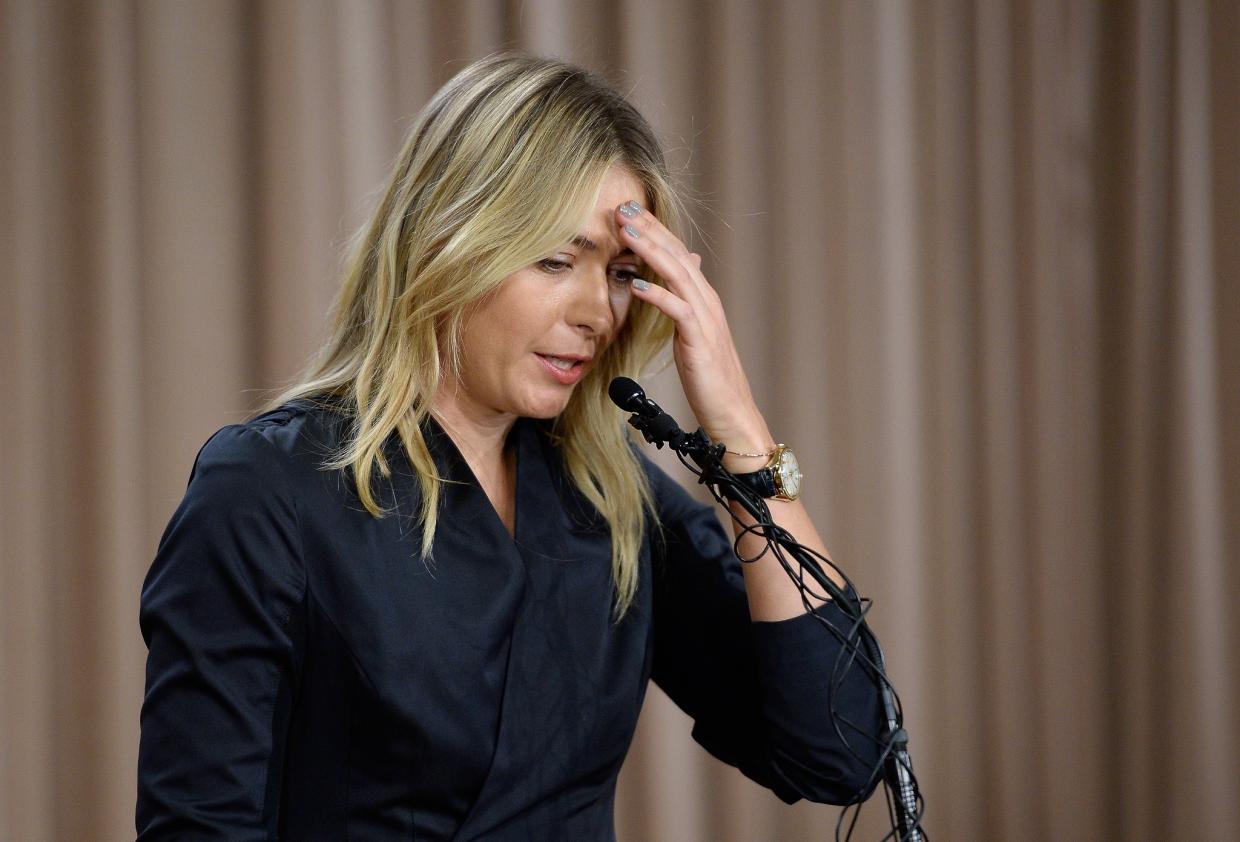The International Tennis Federation (ITF) has banned Maria Sharapova for two years for using prohibited drug meldonium.
Maria Sharapova was provisionally banned in March after testing positive for meldonium at January’s Australian Open.
Meldonium, a heart disease drug, which 29-year-old Russian says she has been taking since 2006 for health issues, became a banned substance on January 1, 2016.
The five-time Grand Slam winner said she “cannot accept” the “unfairly harsh” ban – and will appeal.

Maria Sharapova will challenge the suspension, which is backdated to January 26, 2016, at the Court of Arbitration for Sport (CAS).
In a statement, Maria Sharapova said the tribunal concluded her offence was “unintentional” and that she had not tried to use a “performance-enhancing substance”.
However, she claimed the ITF had asked the tribunal to impose a four-year ban, adding it “spent tremendous amounts of time and resources trying to prove I intentionally violated the anti-doping rules”.
The tribunal ruling said Maria Sharapova tested positive for meldonium in an out-of competition test on February 2, as well as in the aftermath of her Australian Open quarter-final defeat by Serena Williams on January 26. It treated both results as a single anti-doping violation.
The ITF will not appeal against the tribunal’s decision.
Nike, which suspended its relationship with Maria Sharapova in January, said it would “continue to partner” the Russian, based on the tribunal’s findings.
Maria Sharapova was Forbes‘ highest-paid female athlete for 11 consecutive years, until Serena Williams moved above her in 2016.
The World Anti-Doping Agency (WADA) said in April that scientists were unsure how long meldonium stayed in the system, and suggested athletes who tested positive before March 1 could avoid bans, provided they had stopped taking it before January 1.
Maria Sharapova had already admitted she continued taking the substance past that date, saying she was unaware it had been added to the banned list as she knew it by another name – mildronate.
In reaching its verdict, the ITF recognized Maria Sharapova had not intentionally broken anti-doping rules, as she did not know that mildronate contained a banned substance from January 2016.
